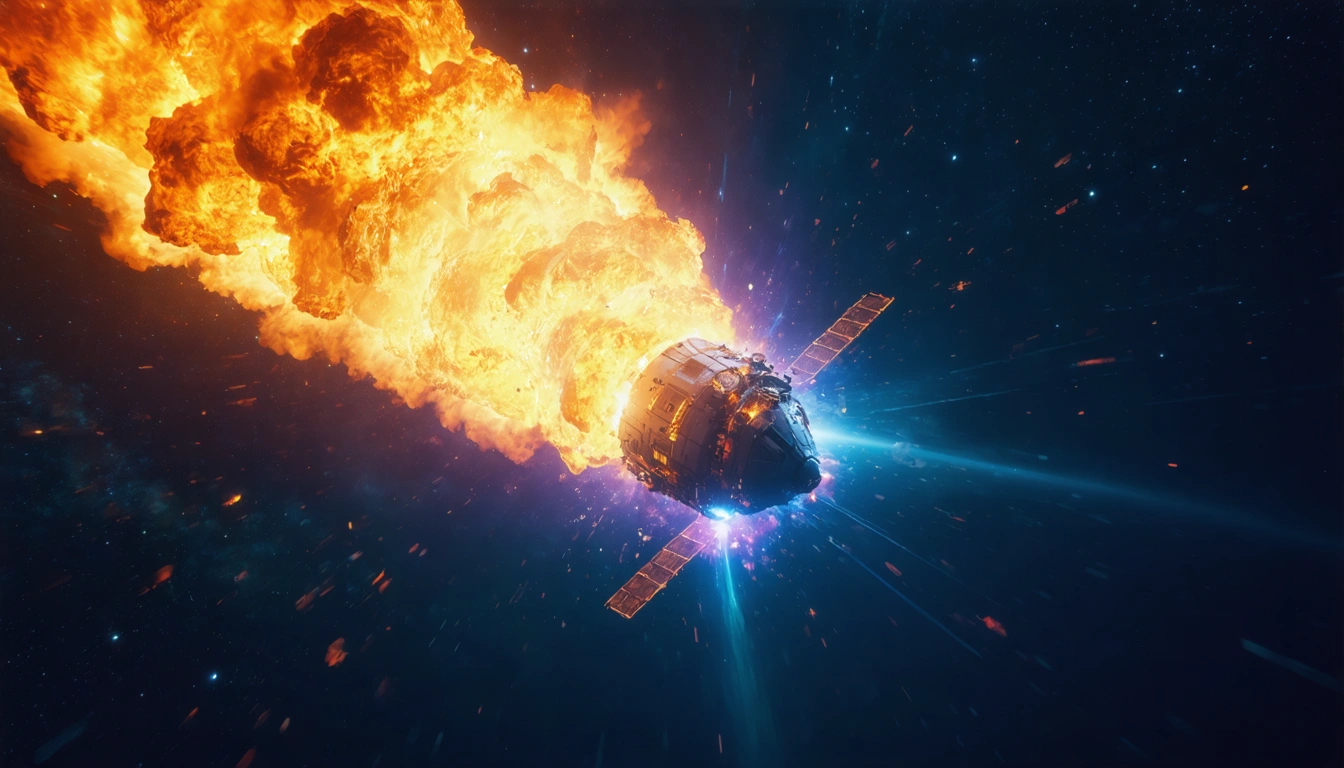- Home
- Technology
- Soviet-Era Spacecraft Kosmos 482's Uncontrolled Reentry: A Wake-Up Call for Space Debris Management
Soviet-Era Spacecraft Kosmos 482's Uncontrolled Reentry: A Wake-Up Call for Space Debris Management

In the coming days, a relic from the Cold War era, the Soviet spacecraft Kosmos 482, is set to make an uncontrolled reentry into Earth's atmosphere. Launched in 1972 as part of the USSR's ambitious Venera program aimed at exploring Venus, the mission failed to escape Earth's orbit due to a rocket malfunction. As a result, Kosmos 482 has been orbiting our planet for over five decades, and its descent is now imminent.
According to the European Space Agency (ESA), the reentry is projected to occur between May 9 and 11, 2025. The spacecraft, weighing approximately 1,100 pounds and designed to withstand the harsh conditions of Venus, is expected to survive reentry partially intact. While the exact location of impact remains uncertain, experts believe it will likely land in the ocean or an unpopulated area, minimizing potential risks to human life. However, the event highlights the broader issue of space debris and the challenges it poses to both space operations and safety on Earth.
Space debris, often referred to as "space junk," includes defunct satellites, spent rocket stages, and fragments from previous missions. The accumulation of such debris increases the risk of collisions in orbit, which can generate even more debris—a phenomenon known as the Kessler Syndrome. This cascading effect threatens the sustainability of space activities and underscores the need for effective debris management strategies.
Historically, the responsibility for managing space debris has been shared among spacefaring nations. However, the rapid increase in satellite launches, particularly from private companies, has complicated this landscape. The reentry of Kosmos 482 serves as a reminder of the long-term consequences of past missions and the importance of designing spacecraft with end-of-life disposal plans.
For everyday Americans, the reentry of Kosmos 482 may seem like a distant event with little direct impact. However, it brings to light several critical issues:
- Safety Concerns: While the likelihood of debris causing harm is low, the potential for damage exists. Ensuring that future missions have clear deorbit plans can mitigate these risks.
- Environmental Responsibility: Just as we are concerned about pollution on Earth, space debris represents pollution in orbit. Responsible management is essential to prevent long-term consequences.
- Technological Innovation: Addressing the space debris problem requires innovative solutions, such as debris removal technologies and improved satellite design. This presents opportunities for American companies and researchers to lead in this field.
Generational perspectives on this issue vary:
- Baby Boomers: Having witnessed the dawn of the space age, Boomers may view this event as a reminder of the rapid technological advancements and the need for responsible stewardship.
- Generation X: Often characterized by pragmatism, Gen Xers might focus on the practical implications and advocate for policy reforms to address space debris.
- Millennials: With a strong emphasis on sustainability, Millennials may see this as an environmental issue, pushing for innovative solutions and international cooperation.
- Generation Z: Digital natives who have grown up with constant technological change may be more inclined to support and develop technological solutions to the problem.
Addressing the challenge of space debris requires a multifaceted approach:
- International Cooperation: Space is a global commons, and collaborative efforts are essential to develop and enforce debris mitigation guidelines.
- Policy Reform: Governments need to establish and enforce regulations that require end-of-life disposal plans for all spacecraft.
- Technological Innovation: Investing in research and development of debris removal technologies can help clean up existing debris and prevent future accumulation.
In conclusion, the impending reentry of Kosmos 482 serves as a stark reminder of the challenges posed by space debris. While the immediate risk to human life is minimal, the event underscores the need for robust international cooperation and innovative solutions to manage and mitigate space debris. As we continue to explore and utilize space, it is imperative that we do so responsibly, ensuring the safety of both our planet and future generations.
Generational Perspectives
Explore how different generations perceive this topic. Click on a generation to expand.
Generational Stakes in Space Debris Management
Each generation faces unique challenges and responsibilities regarding space debris. Baby Boomers and Generation X, having witnessed the evolution of space exploration, may feel a duty to advocate for responsible policies. Millennials and Generation Z, with their focus on sustainability and technology, are poised to drive innovative solutions. The outcomes of current actions will significantly impact future generations, emphasizing the need for immediate and collaborative efforts.
Finding Common Ground
Regardless of generational differences, there is a collective recognition of the importance of responsible space exploration. Ensuring the sustainability of space activities and the safety of our planet requires a unified approach, emphasizing international cooperation, policy reform, and technological innovation.
Looking Up: Addressing the Space Debris Challenge
The impending reentry of Kosmos 482 serves as a stark reminder of the challenges posed by space debris. While the immediate risk to human life is minimal, the event underscores the need for robust international cooperation and innovative solutions to manage and mitigate space debris. As we continue to explore and utilize space, it is imperative that we do so responsibly, ensuring the safety of both our planet and future generations.
Sources
- Soviet-era spacecraft is expected to plummet to Earth this weekend after 53 years by AP News (May 9, 2025)
- What to Know About The Soviet-Era Venus Spacecraft Plunging Back to Earth by Time (May 7, 2025)
- Doomed Soviet spacecraft Kosmos 482 could hit Earth tonight. Here's when. by Live Science (May 9, 2025)